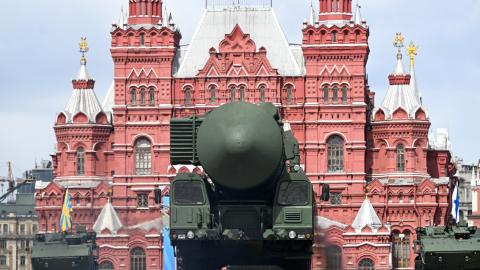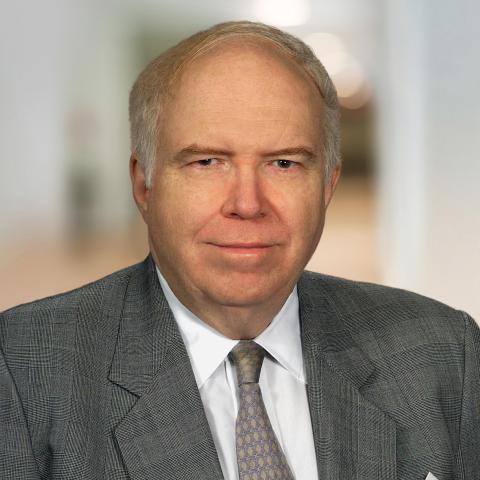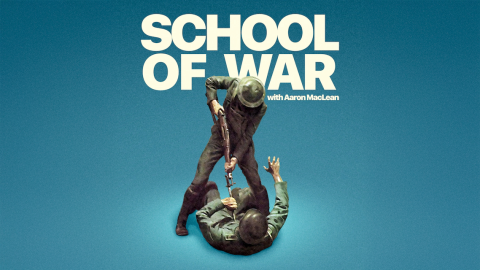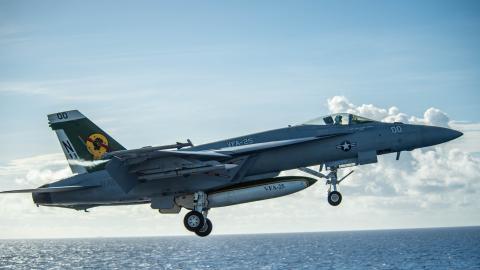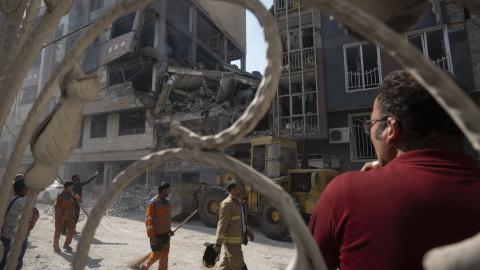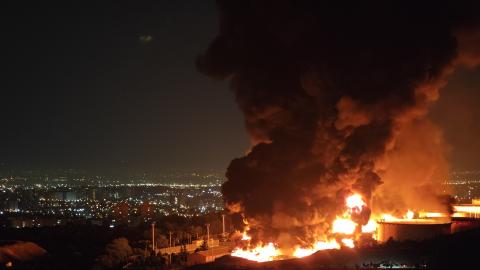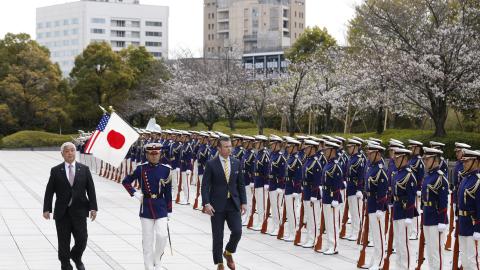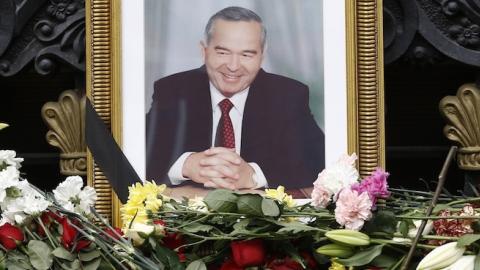__The funeral for Islam Karimov, Uzbekistan’s president since the country’s independence in 1991, took place over the weekend. With no apparent successor, The Cipher Brief’s Kaitlin Lavinder talked with Richard Weitz about the threat of a power vacuum leading to instability and what that means for U.S. interests in the region.__
**The Cipher Brief: Uzbekistan president Islam Karimov just passed away, and his successor is unclear. When will we see a successor, and how great is the threat of instability in the country?**
Richard Weitz: Often in these kinds of situations, the first person who is put in charge will not necessarily stay in charge. For example, in the Soviet context, for a while there was a dispute over Lenin’s succession and then Stalin emerged dominant. There was a similar dispute after Khrushchev’s removal. For a while it looked like it might be the Prime Minister, but then Secretary General Brezhnev emerged on top. So even if the Uzbeks choose a successor, it’s not clear if that person will remain in charge.
For the question about general instability, so far Uzbekistan has been more stable on the surface than other countries in the region because it has a very strong internal security service. But the fear might be that if it reaches a critical mass the whole situation would topple, as we saw with some of the former Soviet countries of eastern Europe.
For now, though, it looks stable. It’s not clear that any large numbers of Uzbeks involved in the Islamic State (ISIS) who go off and fight in Syria have been able to return or have even tried to return. The security services are very vigilant on these kinds of developments.
**TCB: You mentioned that some Uzbeks fight with ISIS. Also, some go and fight with the Taliban in Afghanistan. Can you talk about Uzbekistan’s efforts in combating violent extremism?**
RW: The Uzbeks have a strong commitment to fighting terrorism, both in terms of public statements and actual policy. They work with the United States, NATO governments, and many foreign governments – like the Russians and the Chinese, through the Shanghai Cooperation Organization, through bilateral agreements, etc. – to identify potential terrorist threats and eliminate them.
In terms of the reach of their policy, the Uzbeks appear to be focused on defending their borders and internal security. They cooperate in training efforts; the U.S. and other countries give them equipment to help them monitor their borders; and they presumably share information about potential terrorists in Syria and Afghanistan that are of Uzbek origin. But the fighting in Afghanistan has not spilled across their borders like it has with some of the other former Soviet bloc countries, for example.
**TCB: The U.S., Russia, and China all have interests in Central Asia from oil & gas to efforts to counter violent extremism. Can you explain the interests of each country and how this power vacuum left by Karimov’s death could be used as leverage for each country?**
RW: Let me talk about Russia first because Russia has the dominant influence in the region. It has close security, defense, and economic ties with all the Central Asian countries. Several of them are Russian military allies and host Russian military bases – particularly Kazakhstan, which is an important ally, and Tajikistan and Kyrgyzstan, which have important Russian military bases. The Russian influence in Uzbekistan under Karimov has been limited. He was wary about Russia’s aspirations in the region. He blocked certain Russian proposals, and he did not join the Eurasian Economic Union (Russia’s leading economic focus). So the thinking is the Russians will see Karimov’s departure as an opportunity to try to gain more influence, like that which they have in the neighboring countries. How they might do this is through offers of greater economic and military assistance and also backing a successor to Karimov who is more pro-Russian.
The United States and Europe have had a lot less leverage in this region over the years. The U.S. no longer has military bases in Central Asia. The economic influence of the U.S. there is limited to the energy sectors in some countries, like Kazakhstan. Uzbekistan has cooperated with the U.S. at times on security issues. Right after the American intervention in Afghanistan, the Uzbeks let the U.S. host a base there, and it has let other NATO countries base there. But there was a dispute over how to respond to internal disturbances under Karimov, and the Uzbek government was persuaded by the Russians and others that it was too risky to have U.S. forces there because the U.S. was so committed to democracy and perhaps not fully committed to the Karimov regime. By 2008 cooperation resumed, but so far it has been limited. Uzbekistan let the U.S. bring non-lethal aid through its territory to Afghanistan and there is some bilateral cooperation. But the U.S. influence in Uzbekistan is small overall, so there’s a limit to what the U.S. can do – although, there are some minimal goals of wanting to keep terrorism cooperation going and wanting to continue the access to Uzbek facilities (for use in Afghanistan, for example).
The big wildcard I think is China. Traditionally, China has been expanding economic ties with all of those Central Asian countries, particularly Uzbekistan – the Chinese are very eager to get uranium and gas and use the country as a transit for pipelines that connect China to some of the other Central Asian countries. The economic cooperation is strong. There’s not clear evidence Russia has impeded or been able to impede that. Security cooperation is limited. I think the Chinese have been helping the Uzbeks with internal security, monitoring terrorists, maybe Internet control. But beyond that, they’re very deferential to Russia.
The wildcard, though, is if the Russians are too heavy-handed and try to establish a pro-Moscow government in Tashkent or attempt military intervention, like the way they did in Georgia and Crimea. I don’t know if the Chinese would try to oppose this, but they would likely not be happy. The other alternative is that Russia is seen as too weak and that there’s internal instability in Uzbekistan that spills over to other Central Asian countries (affecting Chinese assets). Then the Chinese have to make a decision whether they are comfortable letting Russia take the lead or whether they’ll go in themselves and establish their first foreign military bases and take a more active role. The Chinese have been confronting this in some other countries as well. So far, for example, they’re counting on Russia to deal with the Afghan problem and to keep order in Kazakhstan. But if the Russians either fail or are seen as too heavy-handed, the Chinese may feel uncomfortable in playing a more active role.
TCB: How exactly could the Russians have a hand in picking Uzbekistan’s successor?
RW: This is all speculation, but I think the Russians have been preparing for the post-Karimov transition for a while. I suspect they’ve been cultivating relations with the various candidates, some of whom are described by Western media as being more pro-Russia. They could influence these successor candidates by offering to give Uzbekistan greater economic and military assistance if they change some policies on Russia.
There are also probably some ties between the Russian and Uzbek security services. They could share information with some candidates and circulate disparaging information about some of their rivals, for example, claiming that the opponent was involved in drug dealing. Or they could release certain compromising email messages. The Russians have many tools they could use to influence who the successor could be. Karimov was a tough person to deal with, from Moscow’s point of view, and they probably hope for more from his successor.
